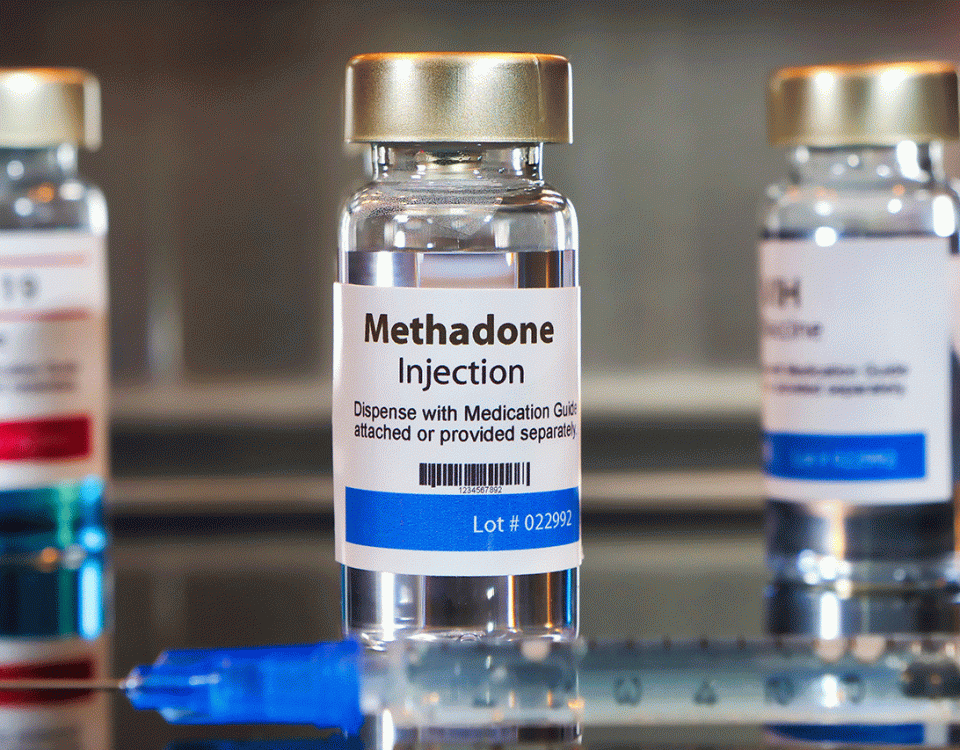Diphenhydramine is an active ingredient in many over-the-counter medications.
However, as of recently, people are using diphenhydramine for recreational purposes. For example, a recent Benadryl trend on TikTok encouraged users to purposely overdose on the medication (which contains diphenhydramine) to experience hallucinations. Any form of substance abuse is dangerous and can have serious repercussions. Our Delaware drug and alcohol treatment center is sharing more information about Diphenhydramine overdose and how it happens.
What is Diphenhydramine?
Diphenhydramine is an antihistamine, which can be found in many allergy and sleep medications. It’s used to relieve symptoms of allergies, hay fever, and the common cold. These symptoms may include rash, itching, watery eyes, cough, itchy eyes, nose, and throat, and sneezing. Medications that contain diphenhydramine can also be used to prevent nausea and vomiting, as well as dizziness caused by motion sickness.
Some common medications that contain diphenhydramine include:
- Advil
- Benadryl
- Nytol
- Sominex
- Tylenol PM
- Unisom
- Dimetapp
- Bayer Aspirin
- Ivarest
It can also be found in certain store-brand medications, like the “Equate” brand from Walmart or CVS’s Health store brand. Diphenhydramine works by blocking a substance that your body produces naturally during an allergic reaction called histamine. Histamine is a chemical released by white blood cells into the bloodstream in an attempt for the immune system to defend itself against an allergen. Pollen, mold, and different foods can cause these allergic reactions. Diphenhydramine works to alleviate any discomfort caused by these symptoms while also acting as a sleep aid.
What Happens if You Overdose on Diphenhydramine?
Can you overdose on diphenhydramine? Yes, meaning you can overdose on Benadryl. An overdose occurs when you take more than the normal or recommended amount of a medication. Overdose can occur accidentally or on purpose. In certain cases when diphenhydramine is used recreationally, mixed with other drugs or alcohol, or taken in large doses on purpose, the risk of overdose increases. The symptoms of a diphenhydramine overdose can be life-threatening. Many individuals from young kids to adults have suffered diphenhydramine overdose death. One study, in particular, reviewed a massive diphenhydramine overdose resulting in the death of a 14-year-old girl. She experienced seizures, hemodynamic compromise (abnormal or unstable blood pressure), and problems with cardiac conduction (irregular heartbeats) after ingesting 7.5g of diphenhydramine, the largest overdosage documented.1
Some common diphenhydramine overdose symptoms include:
- Difficulties urinating
- Blurred vision
- Dry mouth
- Dry eyes
- Dry skin
- Enlarged pupils
- Ringing in the ears
- Low blood pressure
- Increased heart rate
- Agitation
- Confusion
- Delirium
- Drowsiness
- Depression symptoms
- Hallucinations
- Anxiety
- Sleepiness
- Tremors
- Poor balance
- Seizures
The dosage of diphenhydramine that can cause overdose depends on the type of medication the person is taking and their age. Certain medications that contain diphenhydramine aren’t helpful for children under the age of six, so they shouldn’t take them unless directed by a doctor. Medications that have diphenhydramine vary in dosage depending on the age of the individual. The dosage of diphenhydramine can vary from 12.5 mg to 50 mg. An overdose can occur if a person takes more than the recommended dose. For example, if the recommended dose for a 12-year-old who’s taking Benadryl is 25 to 50 mg every 4 to 6 hours, ingesting a higher dose or ingesting it more frequently can result in an overdose.;
An individual can develop a diphenhydramine addiction and tolerance. Many individuals abuse medications that contain this ingredient to experience side effects like sleepiness and hallucinations. Using diphenhydramine recreationally can lead to addictive behaviors. At Banyan Treatment Centers Delaware, we have first-hand experiences with addiction and overdose. Engaging in one form of substance abuse often opens a doorway into other avenues of experimentation with drugs and alcohol. If you or someone you know is struggling with addiction, our medical detox in Milford can be the first step in recovery.
What You Should Do If Someone Overdoses on Diphenhydramine
If someone overdoses on diphenhydramine, call 9-1-1 or call poison control, which can be found by calling the Poison Help Hotline (1-800-222-1222). It’s important to know what diphenhydramine HCl overdose symptoms look like to be able to recognize them in yourself or a loved one. Any form of medication, over-the-counter and prescribed, should be taken as directed. Do not assume these medications are ever entirely safe to take.
Many medications, both over-the-counter and prescription, can lead to addiction. If you’ve developed a drug or alcohol problem and need help, call Banyan Delaware now at 888-280-4763to learn more about our residential treatment facility in Delaware..









